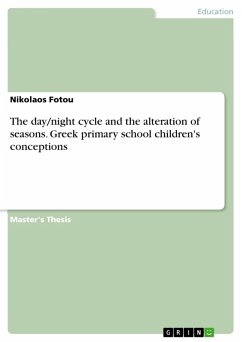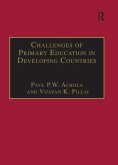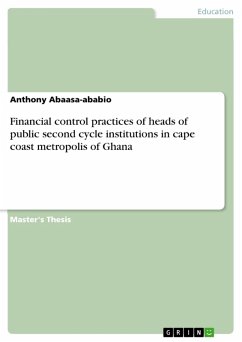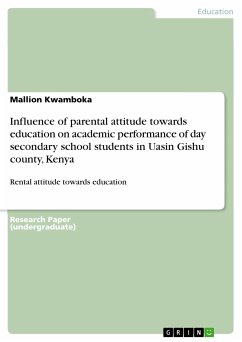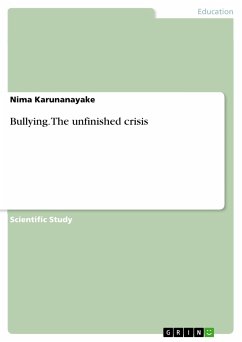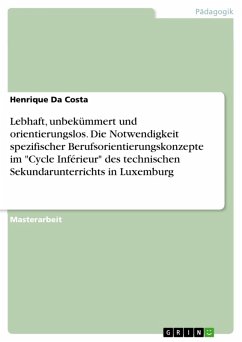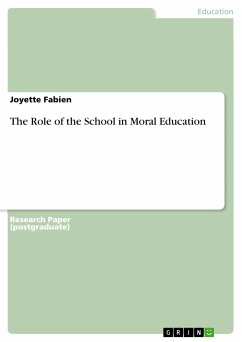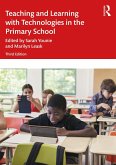Master's Thesis from the year 2012 in the subject Pedagogy - Miscellaneous Topics, grade: Distinction, , language: English, abstract: In the last forty years, research in science education has focused on investigating students' ingenuous and intuitive views across a wide range of scientific domains and ages. The majority of these studies have reported that children form ideas about several physical phenomena at a very early age, before receiving any formal education. These naive views and meanings are initially formed from events that children experience and observe every day in the natural world. As Driver and others pointed out, these ideas usually go against the scientific views and are in conflict with them. Those kinds of students' perspectives are known as alternative conceptions, preconceptions, alternative frameworks and misconceptions. Research in this domain has, also, offered explanations about the origin of these naive ideas. These explanations could be broadly categorized into two theoretical groups. The first one refers to the Piagetian notion of learning while the other derives from a Vygotskian perspective. Several books have been written regarding differences between Piaget's points of view about learning and Vygotsky's ideas. However, as Sjoberg (2007) pointed out, they both can be seen as constructivists. In agreement with this statement, Pass (2004) noted that the two perspectives offer different paths on the way to constructivism. Vygotsky has placed greater emphasis in the social and cultural factors, whereas Piaget believed that knowledge is constructed from experiences as the individual gradually grows and develops. Thus, for the latter constructivist view of learning is the result of natural and spontaneous knowledge (personal constructivism, Piaget, 1960), while the former perceives it as a social interaction. The majority of studies have been based on these two theories of learning. In the present study, these two viewpoints are adopted. According to these approaches, individuals construct their own ideas and understandings from inputs which have as a result the form of a wide range of conceptions. As Vosniadou and Brewer (1987) argued, knowledge is acquired and restructured when naive ideas encounter dissimilar and, in some cases, competing views. Students usually confront such conflict situations in their everyday life when observing nature and discussing with their peers or when asked to deal with different ideas in classroom settings.
Dieser Download kann aus rechtlichen Gründen nur mit Rechnungsadresse in A, B, BG, CY, CZ, D, DK, EW, E, FIN, F, GR, HR, H, IRL, I, LT, L, LR, M, NL, PL, P, R, S, SLO, SK ausgeliefert werden.

